The Woke Catechism of Legal Academia
To the consternation of the left, which now dominates legal education, originalism is alive and well—ascendant, in fact. In response, liberals whine and double-down in their overheated denunciations of constitutionalism.
This essay originally appeared in Law & Liberty on September 19, 2022 (here). Thanks to Power Line, How Appealing, The American Project (here), and the Tennessee Star Report (here)!
Prominent legal scholar Erwin Chemerinsky epitomizes the current state of legal academia, and the arc of his 42-year-long career illustrates the left’s capture of legal education. Chemerinsky has impeccable academic credentials: Dean of the top-tier UC Berkeley Law School (formerly known as Boalt Hall, but renamed in 2020—under Chemerinsky’s leadership—due to the benefactor’s support, in 1877(!), of then-widely-shared anti-Chinese views later reflected in the 1882 federal Chinese Exclusion Act); President of the influential Association of American Law Schools; and author of widely-used casebooks and treatises. The voluble Chemerinsky has arguably eclipsed Laurence Tribe as the left’s most revered expert on constitutional law, serving on the Board of Academic Advisors of the American Constitution Society, a left-wing rival to liberals’ nemesis, the Federalist Society.
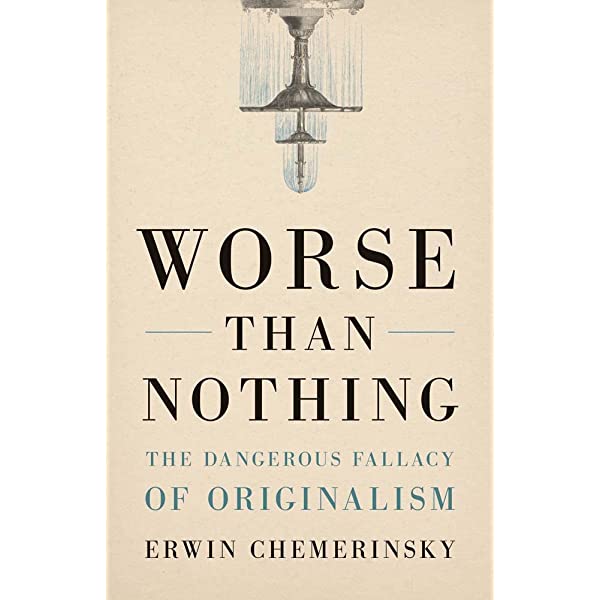
Accordingly, Chemerinsky’s latest book, Worse Than Nothing: The Dangerous Fallacy of Originalism, published by Yale University Press, is a peek into the legal academy’s inner sanctum. The book boasts fawning blurbs by liberals such as the ACLU’s National Legal Director, David Cole. What is the current orthodoxy—catechism, if you will—being espoused in America’s elite law schools? Not surprisingly, the collection of trite liberal cliches advanced by Chemerinsky in the guise of a critique of originalism is, like many of his prior tracts, what I once characterized as “a diatribe masquerading as legal scholarship.”
Written in the wake of President Trump’s appointment of three committed originalists to the Supreme Court—a source of ongoing horror to the left—but prior to the overruling of Roe v. Wade in Dobbs v. Jackson Women’s Health Organization in June 2022, which Chemerinsky correctly anticipated, Worse Than Nothing is an ambitious attempt to discredit not just originalism, but any impediment to liberal judicial activism. Despite the left’s hegemony in legal academia (and in the legal establishment as a whole, including the organized bar, law firms, the legal trade press, and even lawyers’ corporate clientele), progressive control over the Supreme Court is rapidly slipping away. After decades of liberal judicial activism, the tide has finally turned. Facing for the first time an originalist majority on the Court, willing to overturn activist precedents sacred to the left, liberal law professors now frantically attempt to de-legitimize constitutionalism altogether.
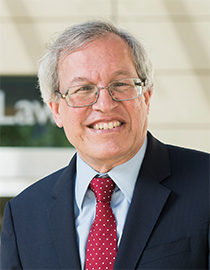
Indeed, in an essay titled “The Constitution Is Broken and Should Not Be Reclaimed,” two Ivy League legal scholars recently argued in the New York Times in favor of abandoning the Constitution. They sputter that “liberals have been attempting to reclaim the Constitution for 50 years — with agonizingly little to show for it. It’s time for them to radically alter the basic rules of the game.” The left is distressed that Supreme Court decision-making—judicial review in accordance with Federalist 78– is constrained by “a text that is famously undemocratic,” with institutional features serving “as impediments to redistributive change.”
Liberals are frustrated that a document drafted more than two centuries ago limits the impulses of an urban polity in the 21st century. Instead, elite law professors openly advocate for “our ability to engage in the constant reinvention of our society under our own power, without the illusion that the past stands in the way.” In other words, mob rule. The left seeks to erase the Founding, inter the rule of law, and surrender control to the woke professoriate. This theme—that the Constitution, as written, doesn’t matter–is increasingly common among “progressive” constitutional theorists, often citing the same chorus of shrill nihilists. This type of postmodern “scholarship” was not mainstream in the legal academy 40 years ago, but has become a popular theme in elite circles today. The “crits,” once an eccentric minority on law school faculties, have seemingly taken over. The “mainstream” of liberal thought has shifted so far to the left that crude reductionist arguments once made only by Marxists and deconstructionists are now, sadly, commonplace.
Chemerinsky is a bit more subtle, but his goal is the same—to impugn the bona fides of the current Supreme Court and to resurrect the concept, if not the vernacular, of “the living Constitution.” The book’s title, Worse Than Nothing, is a snarky rejoinder to Justice Antonin Scalia’s argument that originalism, while imperfect as a theory, is better than the left’s alternative—simply letting unelected justices impose their personal preferences on the entire country. Chemerinsky brazenly contends that subjective decision-making by judges is in fact superior to originalism—unfettered judicial discretion without pretense. “Everything else is a distraction,” he concludes.
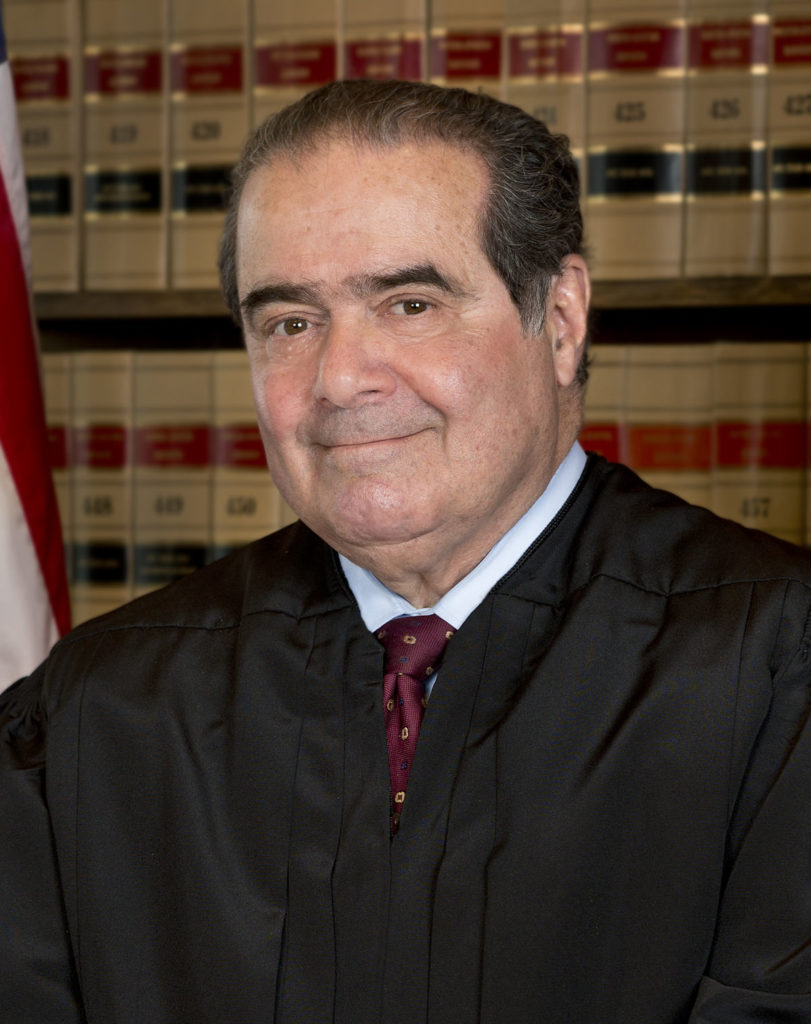
As a sermon directed to the progressive acolytes already in the left’s choir, Chemerinsky’s hackneyed rhetoric may resonate, but to a disinterested reader it will likely sound repetitious, tendentious, and self-serving (not to mention recycled). Interpreting the Constitution based on the document’s original public meaning is (as stated in the book’s subtitle and repeated ad nauseum throughout the text) a “dangerous fallacy” that should make us “very afraid.” Interpreting the Constitution as written is “nonsense” because the Constitution has no “fixed meaning.” Formalism itself—the objective application of legal rules—is a discredited myth, Chemerinsky asserts: “Formalism is impossible in constitutional law.”
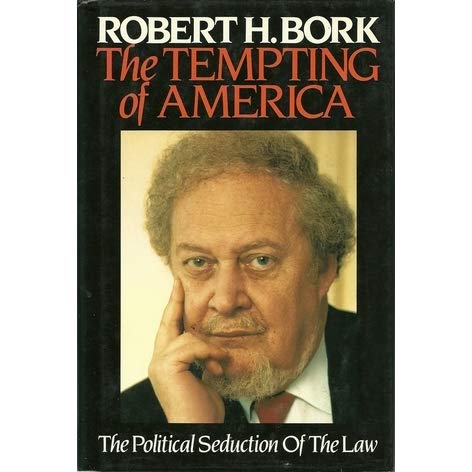
Chemerinsky’s stated goal in Worse Than Nothing is to “help expose originalism as a dangerous fallacy.” The slim volume, with barely 200 pages of text, does no such thing. Unlike Robert Bork’s magisterial The Tempting of America (1990), which methodically analyzed and critiqued the leading “theorists of constitutional revisionism” (both liberal and conservative), Chemerinsky merely re-hashes familiar progressive talking points. His “arguments” consist largely of ad hominem and straw men. The left’s hegemony in the legal academy is so total that—unlike the heyday of “non-interpretivism” in the 1970s and 1980s—opponents of originalism don’t feel it necessary to make an original (or even a convincing) case. The objective is not to persuade an undecided audience. They are addressing their rhetoric to a body of believers who will accept it uncritically as an article of faith. It is the equivalent of woke catechism.
Paradoxically, applying the supposedly indeterminate Constitution as written “gives us repugnant answers” or “abhorrent results” because the Founders were flawed and the world has purportedly changed so dramatically since the Constitution’s enactment. The Constitution apparently has a fixed meaning some of the time, but in such cases produces the “wrong” result (meaning, contrary to the current wishes of the political left). Amendment of the Constitution pursuant to Article V is too difficult to adapt the document to changed societal circumstances (ignoring that 27 amendments have been adopted since 1787, and that the requirement of super-majority approval assures the requisite consent of the polity). Government by the judiciary is the only solution.
Judges must be permitted to decide cases as they have “throughout American history”—i.e., by relying on the subjective predilections of individual judges (or what Chemerinsky euphemistically calls their “wisdom and lived experience”), taking into account many factors, including “modern social needs” and “foreign law and practices.” Chemerinsky contends that “Most constitutional law decisions inescapably come down to value choices by the justices or judges deciding the cases.” “[J]udging is inherently discretionary,” he claims, adding that “determinacy is impossible because balancing is inherent in constitutional law.” Chemerinsky’s superficial “arguments” are little more than ipse dixit propositions, such as: “It is desirable [to whom?] that the Constitution be a living document that evolves by interpretation.” How this squares with popular sovereignty or representative self-government is never explained.
In Chemerinsky’s revisionist catechism, Robert Bork was denied confirmation to the Supreme Court, not because of a deceitful media campaign and Senator Ted Kennedy’s shameful demagoguery, but because originalism was exposed as “a fringe theory,” “radical,” and “too dangerous.” Kennedy played the role of a hero—Paul Revere, even—by warning America about the “dangers” of originalism. The 1987 confirmation hearings were presided over by a “telegenic young senator from Delaware,” Joe Biden. Chief Justice William Rehnquist was a liar. Ruth Bader Ginsburg “was an iconic public figure unlike any other justice in American history.” (Seriously? More iconic than John Marshall, Oliver Wendell Holmes, Louis Brandeis, Earl Warren, or Antonin Scalia, to name just a few?) Chemerinsky suggests that Justices Clarence Thomas and Amy Coney Barrett espouse “radical positions” as originalists, and elsewhere condemns the “radicalism” of originalist jurists. He avers that under the 14th amendment, there is “no basis” for distinguishing between race and sexual orientation. These are mere political slogans—taunts, even–not reasoned arguments.
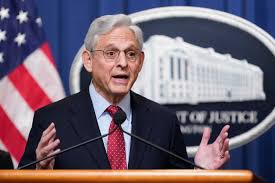
Chemerinsky asserts that Merrick Garland’s credentials when he was nominated to the Court by President Obama in March 2016 were “as impressive as Bork’s” (ignoring Bork’s endowed professorship at Yale Law School, service as Solicitor General, and authorship of a pathbreaking legal treatise), and claims that Garland was a “moderate Democrat, left of center but not very liberal.” Garland’s radical record as President Biden’s Attorney General utterly refutes that perception.
Chemerinsky’s liberal bias is evident throughout the book, but his risible treatment of Garland’s nomination exposes his fundamental dishonesty. During the 2016 presidential campaign, Chemerinsky enthusiastically promoted the confirmation of Garland in The Atlantic, explaining that the prospect of “a Court where there are five or even six justices appointed by Democratic presidents is tantalizing for those on the left, like me.” It is simply disingenuous to portray a nominee as the left’s salvation when it suits one’s purposes, but later to depict him as a moderate martyr sacrificed to appease malevolent Republicans.
Chemerinsky predictably aligns completely with the left’s policy agenda, genuflecting to all the usual liberal totems. Chemerinsky, who testified against the confirmation of Justice Samuel Alito, is an unabashed man of the left. He argues that the reasoning of Roe v. Wade, far from being a jurisprudential abomination, was “sound” and “wise.” The only objection to it is “ideology.” He opposes gun rights, the death penalty, religious expression in public life, and sovereign immunity for the states; he supports same-sex marriage, racial preferences, abortion rights, an expansive reading of the commerce clause, and the administrative state; he believes that the equal protection clause should confer legal protections on women and homosexuals, and so on. Chemerinsky fears that the overruling of Roe v. Wade will lead to the rejection of other precedents not grounded in the original meaning of the Constitution—again, without explaining why the invention of “rights” by unelected judges should override the political choices of “we the people.”
Leftists oppose the Constitution, as written, because it empowers Americans to govern themselves in a manner that the secular left regards as backward and old-fashioned. The bourgeois values abhorred by liberals are not generally reflected in the Constitution, but are enabled by it, via federalism and democratic elections. Leftists would much prefer rule by fiat of unelected judges who share their elite worldview. (Dispense with those messy elections.) Law schools are busy pumping out woke graduates eager to assume such a role. Chemerinsky laments that his side was agonizingly close to achieving control of the Court, and would have, had Hillary Clinton been elected president in 2016. Alas, Chemerinsky fumes, “everything…is different because Donald Trump won the presidency” and put three originalists on the Court.

This explains the left’s disturbing rejection of constitutionalism: because liberals didn’t gain control under prevailing constitutional norms, they wish to change the game by packing the Court, rejecting the legitimacy of the Constitution, and even denying the validity of “formalistic” constitutional interpretation, i.e., treating the Constitution as actual law. Worse Than Nothing is ultimately an extended tirade, rage seemingly fueled by sour grapes: Hillary Clinton lost in 2016 and the left didn’t get the Supreme Court appointments it wanted. Chemerinsky elsewhere admitted that the 2016 election results were “devastating” to him. Chemerinsky is a left-wing polemicist and a prolific op-ed essayist. There is nothing wrong with that, but he simultaneously tries to enhance his authority by wearing the mantle of a legal academic, and tries to palm off his rabidly-partisan views as dispassionate legal scholarship.
Chemerinsky’s final chapter is titled “We Should Be Afraid.” Afraid of what, exactly? That voters might make decisions contrary to the views prevailing in the nation’s overwhelmingly left-wing law faculties? That the Constitution might be interpreted in accordance with its original meaning, instead of the fanciful views of a majority of life-tenured justices? When Chemerinsky warns of the “danger” presented by originalism, and incites “fear” regarding “radical transformations” looming due to the Court’s current composition, he is really fomenting hostility and intolerance toward the institution of representative self-government. He implicitly contends that ordinary Americans can’t be trusted to govern themselves.
At the conclusion of Chemerinsky’s mendacious screed, Scalia’s case for originalism—that it is better than the left’s alternative, which is unbridled judicial discretion—stands unscathed. You can’t beat something with nothing, and Chemerinsky’s fatuous, unconvincing objections to originalism add nothing new to the longstanding debate. Originalism is alive and well.
































